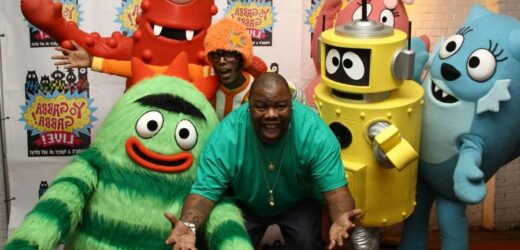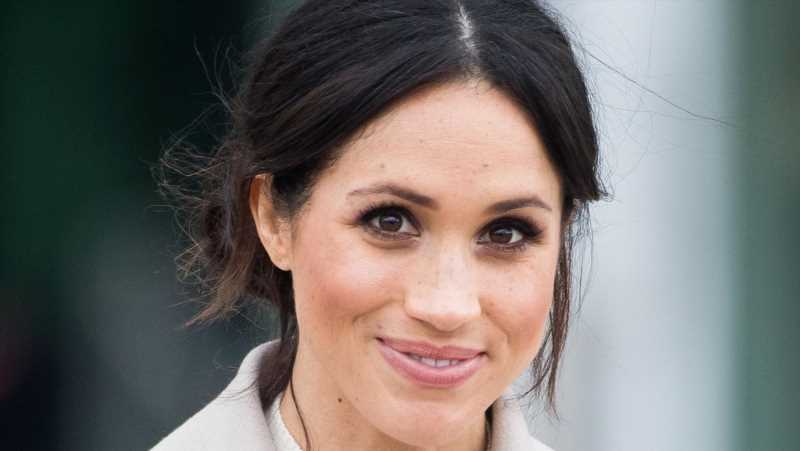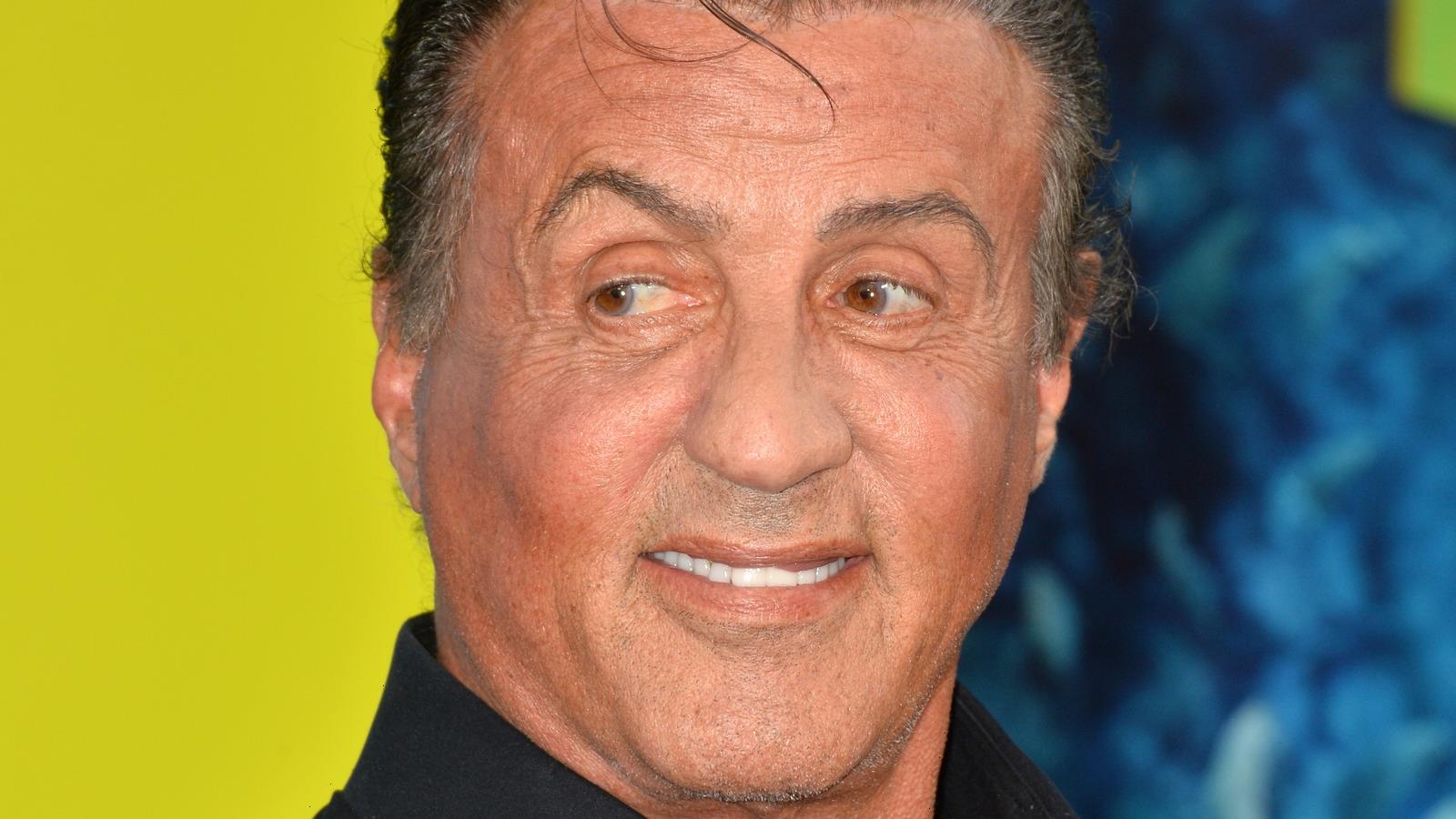By the mid-2000s, Biz Markie was not only a hip-hop legend, but the kind of pop culture personality that seemed to pop up everywhere. And it was always a delight. He was making cameos in movies like Men in Black II, lending his voice to Crank Yankers and cracking jokes on Wild ’N Out. But he could also frequently be found somewhere way more unexpected — the children’s television show Yo Gabba Gabba!
Biz Markie fit the program’s delightfully over-the-top, music-based style perfectly, and during the show’s run from 2007 to 2015, he anchored his own segment, “Biz’s Beat of the Day,” where he taught kids the basics of beatboxing (he also once rapped a breakfast-theme song called “Pancakes and Syrup”). While a jump from MTV to Nick Jr. may seem like a strange one, Yo Gabba Gabba! host DJ Lance Rock noted in a recent interview with Rolling Stone that the show frequently garnered unexpected guests — Anthony Bourdain, Yasiin Bey (f.k.a. Mos Def), Tony Hawk, and the Roots, to name a few — because, simply put, parents will do anything for their kids. Markie, a father of two himself, was no exception.
“You can never underestimate the power of kids,” Lance says. “Skateboarders have kids, punk musicians have kids, surfers have kids, rappers have kids. Just being able to see mom or dad in a different environment, they dug that. The show definitely brought people together that way.
Biz Markie, who died last Friday at the age of 57, was introduced to a whole new generation through Yo Gabba Gabba! And as DJ Lance Rock explains below, his work on the show helped create a unique link between the show’s young audience and their parents. Yo Gabba Gabba! was also the perfect program for the rapper long known as the “Clown Prince of Hip-Hop” — a chance for him to further prove he was always a kid at heart.
I had never met Biz until the show started. I’m a DJ, so I’d been into music for decades, and I actually worked at Amoeba Music in Los Angeles when it first opened up. I saw him come to the store once, and he went straight to the soul section. I was just aware of his music, I liked his work, and I remember in the early Eighties when hip-hop was exploding how he was definitely a presence.
“Biz knew everybody, and everybody knew Biz. It didn’t matter where we went.”
When they were putting the final touches on the concept of Yo Gabba Gabba! and trying to figure out who they wanted to be involved with it, it was me and it was Biz. I’d been in a band that had toured with [co-creator] Scott [Schultz] and he’d seen me perform. He also grew up being inspired by Biz, so he reached out to him on MySpace if you can believe that. When we were filming the pilot, Biz showed up and that was the first time I met him. He had quite a presence wherever he goes. Not only was he a tall guy, a big guy, he just has this oversized personality.
From everything that [Scott] told me, and everything that I’ve heard is that, when Biz first came in, they actually wanted him just to do a “Dancey Dance,” because that’s how they were gonna start getting other people to come be on the show. Biz didn’t really want to dance; he said he had a bad back or something. So he was just like, “Hey, why don’t I just beatbox? We’ll do ‘Biz’s Beat of the Day.’” He came up with it and proposed it to Scott and Christian Jacobs, the other co-creator, and they loved it.
https://youtube.com/watch?v=-95E6-PekiM%3Ffeature%3Doembed
[Beatboxing] is just another way of expressing yourself and communicating, and everybody wants to do that. Kids are very curious, and even when they can’t articulate, they still want to try to connect with other people. Just making noises with your mouth is a really good way to do that. Scott and Christian were always behind it, and the first time children saw it, they responded to it.
Biz also really shone on the live tour. Once Biz got on the road with us, it was magic — he was like Santa Claus; these kids would just run up to him. He would come out and do “Biz’s Beat of the Day,” and they would usually bring a bunch of kids onstage to do it with him. Some of them were really great, and some of them froze, but he was always good with how he dealt with the situation. And I don’t think it can be overstated the importance of having Cool V around, who was his DJ, producer, and his cousin. He knew Biz. He knew how he was feeling; he could motivate him — just the greatest guy you’d ever want to meet. V would come out during “Biz’s Beat of the Day” and hype the crowd up, it was so much fun.
On the later tours, we wanted to make it more of a party, because sometimes the kids got unpredictable, like they didn’t want to beatbox at all. So to make it more entertaining and cohesive, they would bring some kids up see if they wanted to beatbox, and if they didn’t, then they had this mobile turntable and there was a quick DJ set, so it would be a little dance party. And then at the end, Biz would come out, normally to Rob Base’s “It Takes Two,” and then he’d get the crowd into it, he’d do a little beatboxing with them. It was just a marvel to see — he would really just go for it, and people would lose their minds.
https://youtube.com/watch?v=bQkkOyGx2Eo%3Ffeature%3Doembed
Cool V told me at one point, “Biz and I used to talk about this, like, can you believe this? Who would’ve thought that we’d be out on the road, doing a kids show, and loving it!” And they really genuinely did. He was really committed: he would go to the meet-and-greets, he’d give the kids high-fives, take pictures with them; there was so much goodwill there. And of course the parents really loved seeing Biz, especially the ones who were into music and grew up with him, too. I could see from side-stage, watching this connection between generations as the adults were like, “Oh, Biz!” Especially when he would drop in a little bit of “Just a Friend,” the crowd would go crazy. So seeing the parents excited, and then the kids wanting go up there and do a beatbox — it was great. He just knew how to bring everyone together.
Biz knew everybody, and everybody knew Biz. It didn’t matter where we went. He was the ambassador of goodwill. Every city we went to, he had crate diggers that would show up at the bus, they’d pick him up and take him around town to go get records, or whatever he was into. There were always people showing up with bootleg DVDs, which was hysterical. Like, “Hey Lance, wanna come watch this movie?” “That’s not out yet!” “I got a copy right here!” That was just the kind of love and devotion people had for him. He also brought a lot of people to the shows — I got to meet a lot of hip-hop luminaries because of him. Grandmaster Caz, Big Daddy Kane, Xzibit and Fat Joe; just all kinds of people showed up that I would’ve never expected, because they were there for their kids, but they were there to see Biz, too.
https://youtube.com/watch?v=0Svzsl7Ld24%3Ffeature%3Doembed
Biz got it. He was this big kid at heart. He was filled with this joy and excitement, and he was able to tap into this connection with kids, even if other people didn’t see it. We had been doing a lot of work with the Make-A-Wish Foundation, and there was this great kid named Ryder, and I think he had thoracic insufficiency syndrome, and that’s when the chest is deformed and you can’t breathe. It’s like the ribs are trying to crush the lungs, and they have to get something called a vertical expandable prosthetic titanium rib to expand the rib cage so the kid can breathe. And this poor little guy, he’d had over 30 surgeries, and we ended up seeing him a lot after a few of these surgeries. We always embraced him with open arms, like, “Hey come meet [Yo Gabba Gabba! regular] Leslie Hall, come meet Biz.” So he had met Biz and really liked Gabba.
One time, the family came to a show — it was some place where they had to drive a few hours — and they came backstage and Ryder was sitting there looking a little sad. He’d had a surgery and had been recovering, and I can’t imagine what it must be like to have your spine messed up and have trouble breathing. So, he was just sitting there and I was like, “Ok, you just sit here, whatever you want to do that’s fine, we’re gonna enjoy the show, and whatever you need — can I get a high-five?” And he gave me a half-hearted high-five.
“He was this big kid at heart. He was filled with joy and excitement and tapped into this connection with kids, even if other people didn’t see it.”
And then Biz comes backstage, like, “How you doin!” And [Ryder’s] just sitting there, shrugging his shoulders, and Biz is like, “C’mon, man!” And he just kind of shrugged. I don’t think anyone else in the world would have thought to do this, but Biz pushed that kid off the couch onto the ground, and Ryder just started laughing! It changed everything. He was so happy, because even if he wasn’t feeling good, he doesn’t want to be treated like he’s a piece of porcelain, like he’s so fragile. He just wants to be a kid, and Biz innately understood that. I don’t think I would’ve been so bold to push a kid off a couch, but Biz knew what the kids wanted — or he knew what they needed.
That’s what I think about when I think about Biz. He was always able to bring the joy.
This as-told-to has been edited and condensed for clarity
Source: Read Full Article


